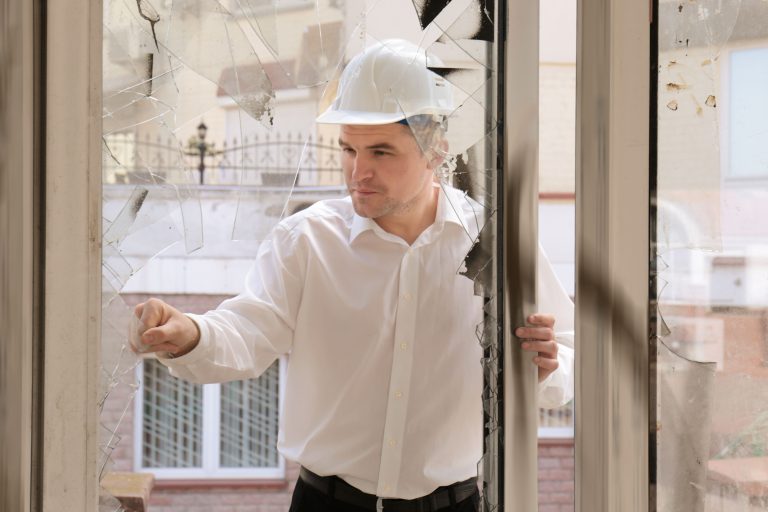- WE’RE HERE TO HELP 24/7
- 800.586.5555
What Should You Do Before a Claims Adjuster Visits to Inspect Your Hurricane Ian Damage?

Kanner & Pintaluga Welcomes Max Blackman in Boca Raton
September 22, 2022
Verdicts & Settlements: $1,270,000 Recovered from Trucking Crash on I-285
October 7, 2022What Should You Do Before a Claims Adjuster Visits to Inspect Your Hurricane Ian Damage?
There are a couple different ways you can approach your Hurricane Ian damage claim. One way is to just call the insurance company

and trust them and the contractors they work with to treat you fairly. This is the easiest way to deal with a hurricane damage claim, but it may result in less-than-ideal claim payments and repairs.
The other way requires a bit more effort on your end, but it’s more likely to result in you receiving a fair claim recovery and fewer out-of-pocket costs.
Familiarize Yourself with Your Insurance Policy
It’s often a good idea to review your insurance policy prior to contacting the insurance company about a wind damage claim. Understanding what types of damages are covered, excluded perils and potentially convoluted definitions can prepare you for negotiations with your insurance company. For example, do you know if your fences are covered under your home insurance policy? That may be covered under a separate “other structures” policy if it’s not attached to your home.
Knowing what may or may not be excluded can help you better represent your own interests in claim disputes.
Thoroughly Inspect and Document Your Property
You should always take pictures or video of damage prior to making any kind of temporary repairs or even cleaning up the damage scene. This is a good rule of thumb after any kind of serious event that justifies filing a claim. It’s important for your insurance adjuster to see the extent of the damage from as many angles as possible so they can accurately grasp the severity of the event.
Make Sure the Property Is Safe
It’s especially important to avoid suffering any injuries on your property, or putting other people in danger while inspecting or repairing your property. Look for damage that might compromise the structural integrity of walls, ceilings, roofing or any other part of your home. Don’t neglect to inspect infrequently visited parts of your property, like tool sheds in the backyard. You may be liable for injuries caused by dangerous conditions on your property, even if you were unaware of them.
Make a Thorough Inventory
The little things truly add up when it comes to property damage claims after a hurricane. Clothing, furniture, electronics, books and a variety of other personal property may need to be thrown away due to water damage after flooding, but you’ll only be able to file a personal property damage claim for those items if you list them in a claim.
The more detailed the list is, the better your chances of receiving a full claim recovery. Include specific brands, model numbers, replacement costs and even receipts if you can find them.
Consult with Licensed Local Contractors
The insurance company may want to have their own estimates performed by contractors they trust and work with on a regular basis. These contractors aren’t necessarily untrustworthy, but they may be more beholden to the insurance company than the people filing a claim. It may be in your best interest to get a repair or roof replacement estimate prior to speaking with the insurance company’s adjuster when they inspect your property. Ask the contractor for a written, detailed bid that fully lists the repair services required as well as the cost of materials.
Know Your Rights
Policyholders who have dutifully paid their premiums for many years are entitled to fair treatment from their home insurance providers. Florida’s Homeowner Claims Bill of Rights clearly details all the rights you have, including:
- Right to acknowledgement of your claim filing within 14 days
- Right to know whether your claim is fully covered, partially covered or denied within 30 days of the submission of a proof of loss statement
- Right to some form of payment or written denial with in 90 days of claim submission
- Interest payments if the insurance company fails to meet claim payment deadlines
You should strongly consider familiarizing yourself with these rights before you file your Hurricane Ian damage claim in Florida.
Are You Worried Your Hurricane Ian Claim Is Being Treated Unfairly?
If you have concerns about how your Hurricane Ian claim is being handled or you believe your claim was wrongfully denied or improperly calculated, you may benefit from assistance. The property damage attorneys at Kanner & Pintaluga are available for a free consultation. Call us at 800.586.5555.
